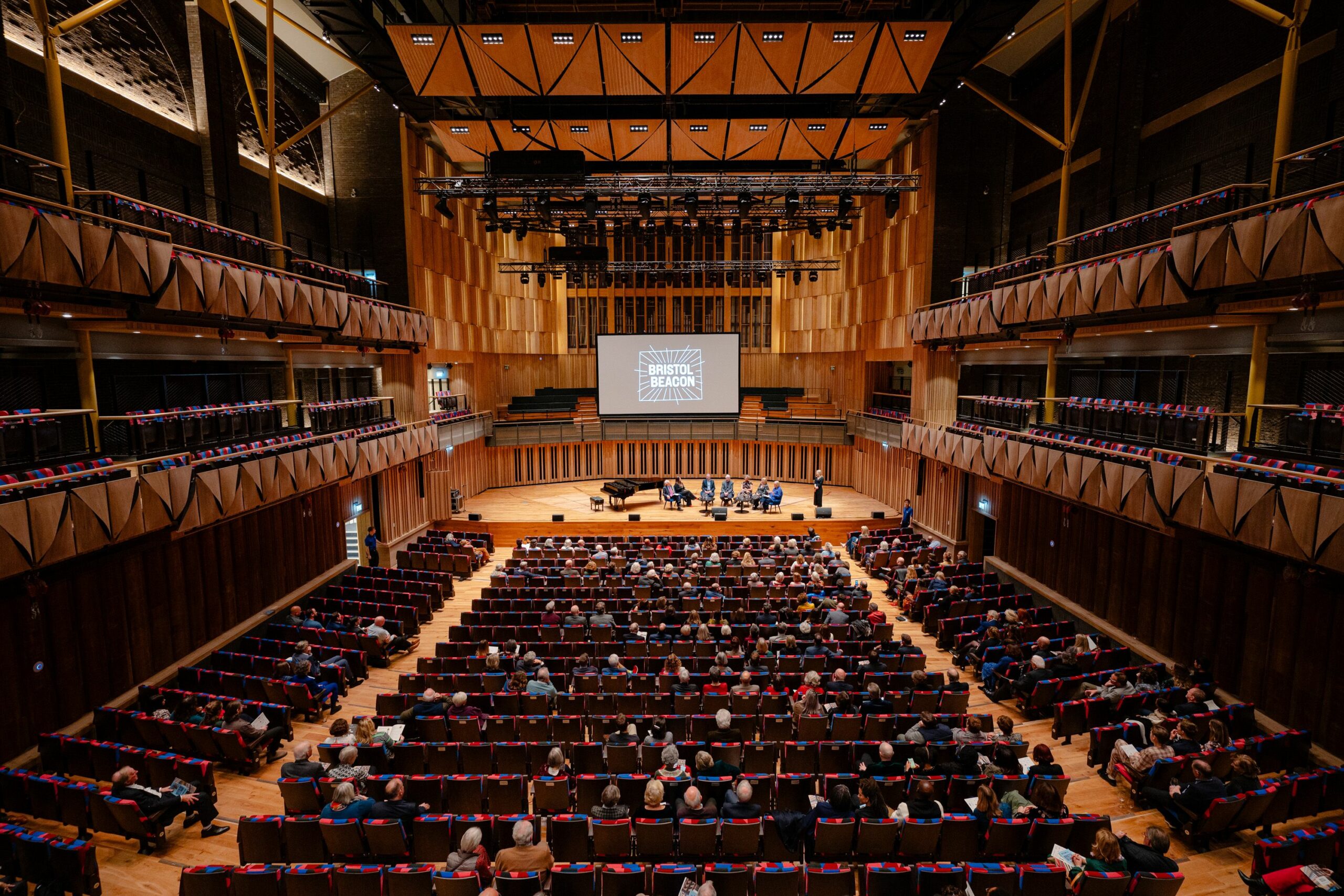
A private event ahead of the reopening of Bristol Beacon in November 2023
Photo: Chris
‘Lack of due diligence’ behind soaring Bristol Beacon costs
Costs for the projected skyrocketed from an initial £48.8m to £131.9m on completion in November 2023.
A report into the refurbishment of the Bristol Beacon concert hall has found an absence of leadership, complex funding arrangements and lack of due diligence all contributed to the project going off course and costing over £80m more than was originally budgeted.
The probe was launched after auditors Grant Thornton criticised Bristol City Council for underestimating the complexity and difficulty of overhauling the Victorian building and the project's skyrocketing costs, which rose from £48.8m to £131.9m.
Ahead of the venue’s opening in November 2023 Grant Thornton called on the council to issue a report into “lessons learned” as soon as possible before. The council initially pushed back publication until February 2024 before delaying it again until last week.
READ MORE:
Carried out by independent consultants Arcadis, the new report highlights the council's failure to initially act on problems flagged by contractors about the building's condition, creating an adversarial “us vs. them” mentality.
Multiple stakeholders told Arcadis that the project team was poorly resourced during the planning phase, with roles and responsibilities sometimes unclear.
“[You] can’t run a project like this by committee; [you] need a project champion from the outset,” said one interviewee.
All of those interviewed referenced the lack of due diligence as a factor impacting the project's trajectory, while several stakeholders said contingency was lacking for the scale and type of project.
The report also found that some costs, including consultant fees or cost risks, were not included in budget projections, along with a lack of understanding of the risks involved with a historical building and not enough investigative work done beforehand.
While demolition commenced in 2018, it was not until the council established a project management office in 2021 that the extent of the Victorian venue’s “worst-case scenario” problems were uncovered.
“Due to the age, architectural design, and building construction of heritage buildings, it is common to come across unforeseen works that introduce an increased risk of scope change,” said the report.
“Hence more detailed due diligence and investigations should be accommodated within the project programme to minimise the associated risks, acknowledging that further items may be uncovered as works progress due to the nature of the building.”
The report continued: “We understand there was an awareness that the building fabric and structure were in poor condition and risks were raised during the pre-project management office phase that they may be in worse condition than initially assumed.”
Multiple funding streams
A complex funding landscape, including income streams from the council capital expenditure budget, grants, and partner funding, also contributed to the spiralling budget.
Initially, Bristol City Council was due to contribute £10m to the scheme, but that rose to £83.9m, with a further £44m coming from music education charity Bristol Music Trust and £22m from Arts Council England.
The report found that the interdependence of the funding streams meant it became tough to modify or reset the project once problems arose, as some outcomes were tightly linked with specific financing.
The stakeholder structure also influenced risk management, leading to “reactive decision-making.” The report found that this resulted in prioritising meeting deadlines without considering future risks, such as cost.
Arcardis interviewed stakeholder representatives from Arts Council England, Bristol City Council, Bristol Music Trust, and the National Lottery Heritage Fund, as well as architects Levitt Bernstein, contractor Wilmott Dixon, infrastructure consultants AECOM, and sustainable development consultancy Arup.
'Part of the story'
A spokesperson for Bristol City Council said that while the report will “provide valuable insight” for current and future project management across the council’s estate, “these elements are only part of the full story of the Beacon’s refurbishment".
“What falls outside the scope of this review is the impacts of multiple external factors, including the global Covid pandemic and subsequent lockdowns, and social distancing measures. The latter days of the project were also impacted by substantial inflation of material and energy costs, plus labour shortages in the sector as development restarted following the pandemic,” said the council.
"It’s clear from this report that the refurbishment of the Bristol Beacon was a project of huge scale and complexity, which experienced unpredictability throughout its lifetime."
Join the Discussion
You must be logged in to post a comment.